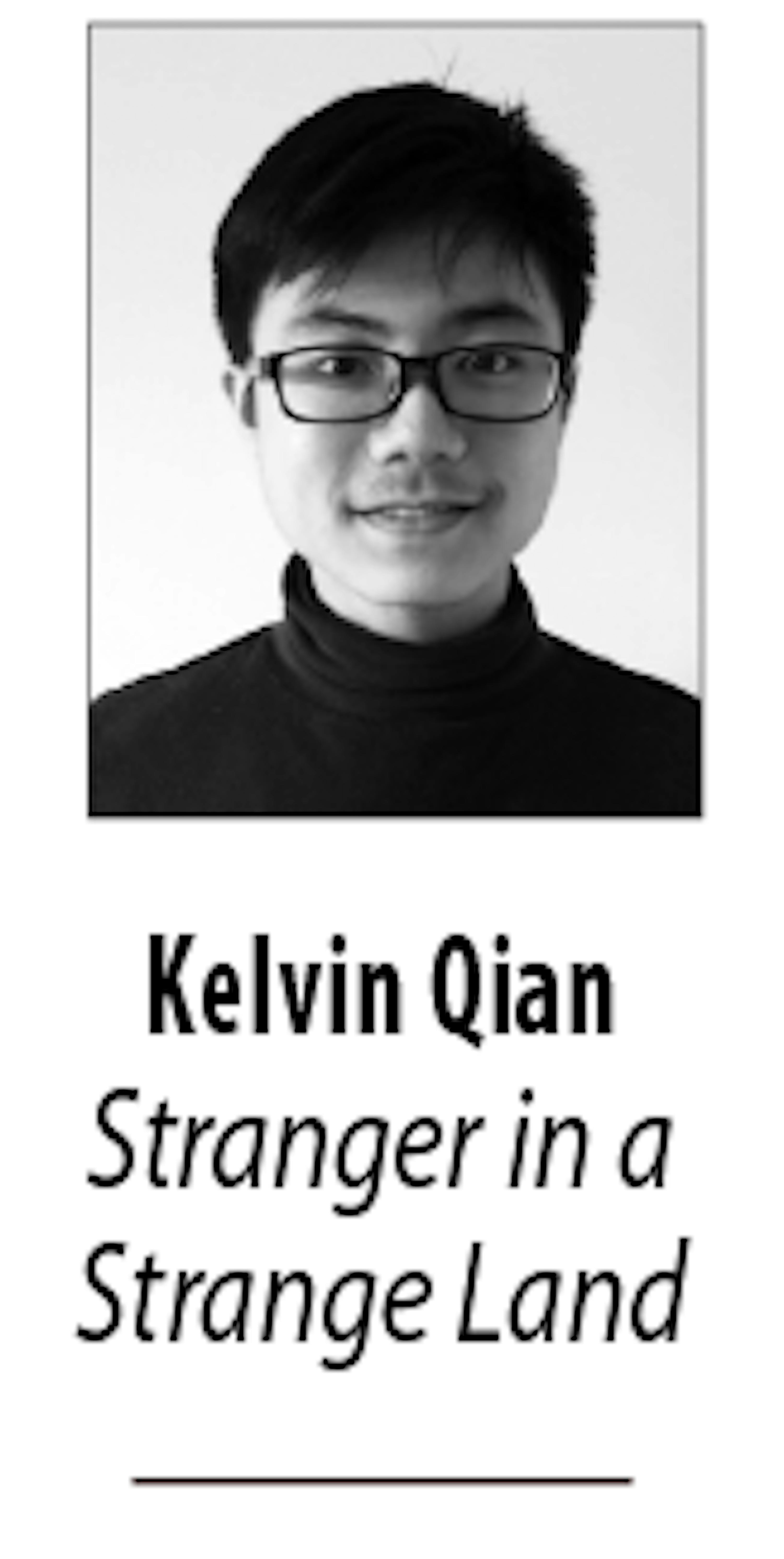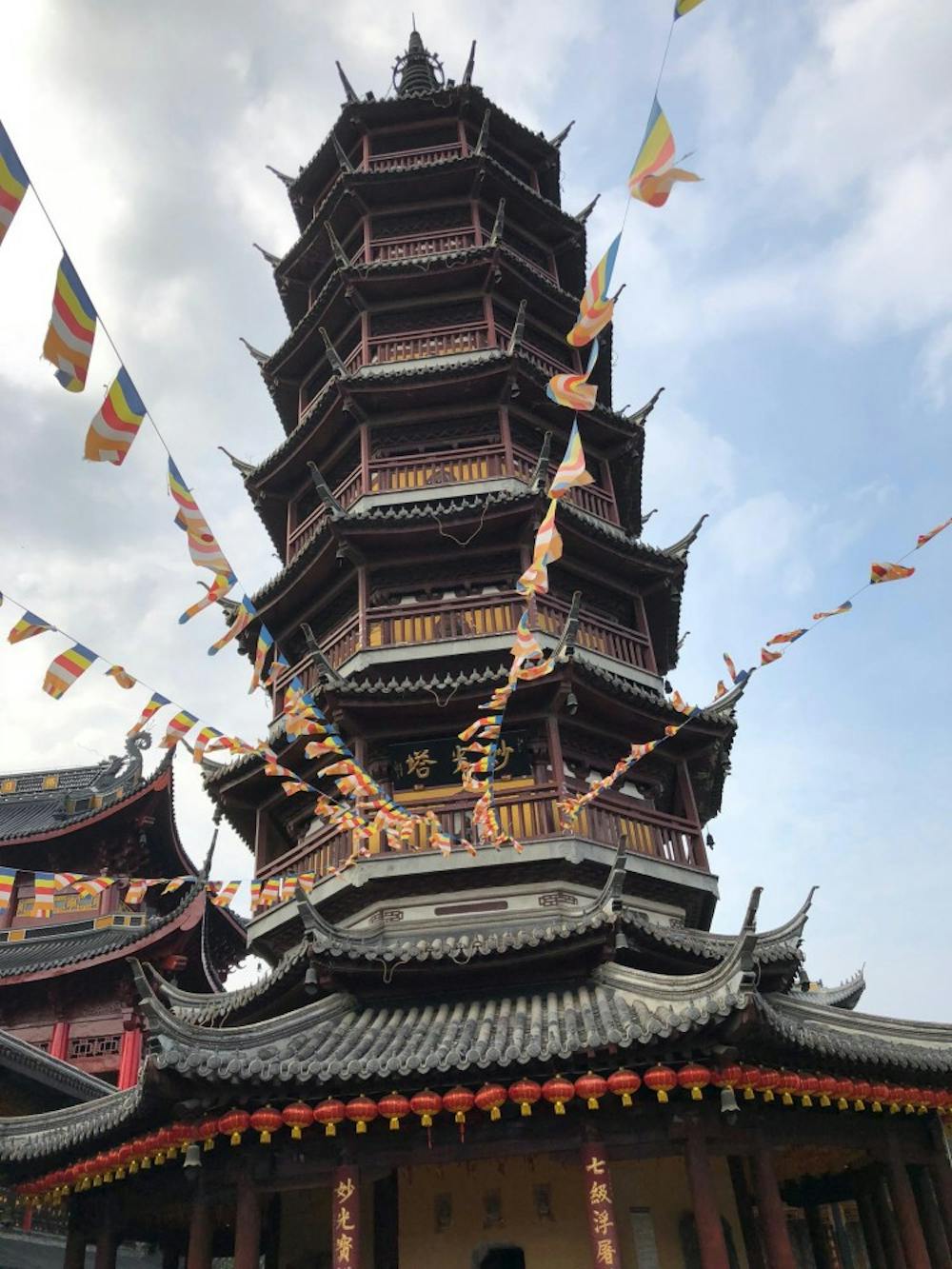
It was over a year ago when I visited the city of Wuxi during my study-abroad program. I was with my roommate, a student at Donghua University, the university in Shanghai that hosted the program. And we were with three of my fellow study-abroad students plus their roommates, who were also local Donghua students.
We had a great time in Wuxi. We started the day by enjoying the sights of Taihu, the giant lake next to the city, and ended it with some very cheap hot pot. In between, we decided to visit the local temple.
All the while, my study-abroad classmates, who were all white, had curious people come up to them left and right. Unlike Shanghai, Wuxi doesn’t get many foreigners, so any foreigners who do visit instantly stand out. And at the temple, a couple of women went up to us and invited my classmates to take a picture with them.
Do you know who they didn’t invite? Me.
Instead, I stood with the roommates, watching from the side as my classmates posed with smiles and peace signs.
Am I not just as American as my fellow travelers, save for my race and heritage? In fact, I wasn’t upset. I actually liked blending in with the locals, to be able to go places without being stared at or being asked to take pictures.
If anything, blending in wasn’t something I could do back in the U.S., especially in school. I stood out from my peers; I was the perpetual foreigner. So when I saw my white classmates treated as actual foreigners, I thought, “Well, now you know what it feels like.”
And it was like that for the remainder of the program. I decided to blend in with everyone, and most of the time it worked. I was just another Chinese guy going about my way.
Sometimes, though, I did want people to see that other side of me. Sometimes I told people that I am an American, just like my classmates. Or that I’m a “hua yi ren,” a foreigner of Chinese heritage. Sometimes people understood that immediately; other times they were incredulous. Such was life in the liminal space, the space between two worlds.
Halfway through our program, a new wave of international students arrived at Donghua, coming from places like Eastern Europe and Korea. After class a lot of them went down to Maia’s, the bar down the street that was the watering hole for many Donghua kids.
One night I was with my fellow students, taking advantage of China’s lower legal drinking age. Behind us was a table of four Korean women who were making lots of loud conversation. We started to wonder what they were celebrating.
We curious Americans began talking to them, and eventually we all migrated to their table. Turns out they were celebrating someone’s birthday. And turns out that they were here to learn Mandarin, just like us.
I knew some basic Korean phrases, some that I learned from K-pop and some that I learned from a Korean American student in our program. I decided to try them out. Our conversation went something like this:
“Annyeonghaseyo?” I said, using the Korean word for hello.
“You know Korean?!” they said.
I went on, saying the most complex Korean sentence I knew at the time: “I’m not Korean, I’m Chinese.”
“Wow, oh my goodness, your Korean is so good!”
I was surprised by how much they complimented my mediocre Korean. I knew that Koreans often praise non-native speakers for learning their language, but it’s a contrast with what I’ve experienced with Chinese. While people often praised my classmates’ Mandarin skills, the best I’d get would be, “Hey, not bad for a ‘hua yi ren.’”
Regardless, I kept going with my new Korean friends, juggling three languages as we showered each other with praise. We were all having a great time, socializing, taking pictures and adding each other on social media.
Around a week later, my friends and I went to Maia’s again. Now, a different group of Koreans was sitting at a nearby table. Like last time, they were impressed by my knowledge of basic Korean. And just like before, we ended up having a good time, concluding with drunken karaoke as we sung “Closer” together.
For those few nights, I felt what my classmates felt that day in Wuxi. They were celebrated as foreigners on Chinese soil, and I was celebrated as a visitor to Korean culture. And on those few nights, I was neither a perpetual foreigner in America, nor stuck in that liminal “hua yi ren” space in China. Rather, I was a stranger in a strange land and proud of it, someone who was invited to be in that picture.





